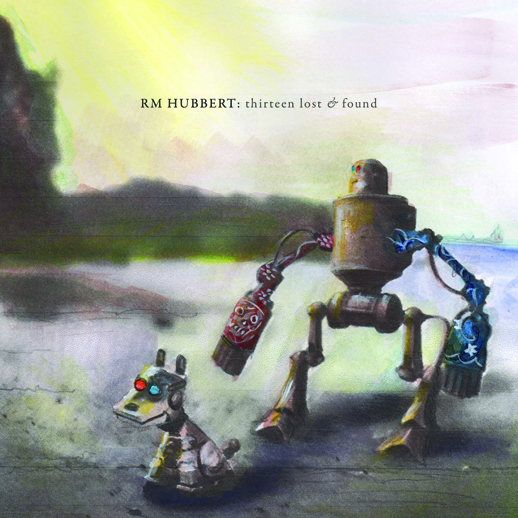
A record by RM Hubbert.
Reviewed by Rob St.John.
RM Hubbert’s songs are an elegy to place, memory and remembrance. As recently chronicled in an extended interview with The Quietus, Hubbert taught himself the flamenco guitar as a means of dealing with difficult, dark personal circumstances: a sustained period of depression interwoven with a marriage breakdown and the death of his parents. Hubbert – the former guitarist of the early 2000s Glasgow DIY post-rock band El Hombre Trajeado – wryly suggests that after running out of space to document events and memories in his life as tattoos (his arms bear an impressive amount of ink…), he turned to writing songs about them instead.
Hearing Hubbert explain the themes behind the devastatingly beautiful ‘For Joe’ – an unspoken eulogy to his estranged step-father at the Shhh! Festival in London at the weekend floored a spellbound audience. There’s something incredibly unusual, and unusually special about seeing him play live. His acute honesty about the dark subject matter creates a sense of group communion that is far from dour. Instead, his set of inventive, precise songs on the classical guitar punctuated with tales and reminiscences foster an incredible sense of warmth and goodwill. And rightly so, his music is a rare and special thing.
Where his 2010 debut First and Last (recently reissued by Chemikal Underground) dealt largely with this period of personal darkness, the series of collaborations that make up Thirteen Lost and Found are more hopeful, positive even. From the opening waves, rattles and pops of percussive flamenco guitar on ‘We Radioed’ like approaching footsteps on faraway cobbles that herald in the LP, Thirteen Lost and Found takes in a tour of collaborations with the Glasgow great and good.
The collaborators lend a varied, rarefied air to the LP. Aiden Moffat’s distinctively dry, dour burr narrates a trip out of the city to revisit old haunts, where in some imagined rural reverie: ‘we can burn our smartphones, and donate our computer to the school down the road’. Hanna Tuulikki’s (from Glasgow band Two Wings) top notes trip and trill around an Oriental scale. The interplay of guitar and banjo on ‘Gus Am Bris An Latha’ (Gaelic for “Until the breaking of the day”, a phrase commonly found on gravestones in the Western Isles) recalls Jim O’Rourke, and the free drumming and creaks and drones of harmonium in ‘Hungarian Notation’ echo The Dirty Three. The collaborative take on ‘The False Bride’ with Ali Roberts that closes the record is a highlight, Roberts’ keening vocals interwoven between understated guitar playing. Despite the varying collaborators, the landscape is Hubbert’s alone: all subtly, sprightly melodies springing through thuds of percussive guitar.
There’s a beautiful Raymond Carver poem called ‘This Morning’, in which Carver describes a winter beach in cold, crystalline light: ‘All lovely. All bathed in a pure cold light. But as usual, my thoughts began to wander. I had to will myself to see what I was seeing and nothing else. I had to tell myself this is what mattered, not the other’. Thirteen Lost of Found echoes this sense of melancholic optimism: a celebration of collaboration, creativity and renewal. It’s a beautiful record.
[audio:https://www.caughtbytheriver.net//wp-content/uploads/2012/02/04-Gus-Am-Bris-An-Latha.mp3|titles=04 – Gus Am Bris An Latha]
Thirteen Lost and Found, is out now on Chemikal Underground.